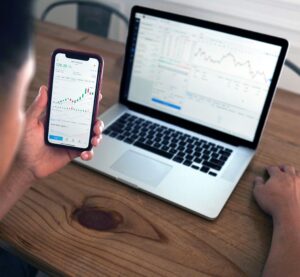Banking plays a crucial role in managing money, growing wealth, and driving economic development. Whether you’re saving for the future, paying bills, or running a business, banking services provide the tools and infrastructure to do so efficiently and securely.
In this blog post, we’ll cover what you need to know about banking—including the types of banks, the services they offer, benefits of using a bank, digital banking trends, and tips for managing your bank accounts effectively.

What to Know About Banking
🏦 What Is Banking?
Banking refers to the business of managing money for individuals, businesses, and governments. Banks accept deposits, make loans, and provide financial services like payments, investments, and currency exchange.
Banks act as intermediaries between people who have extra money (depositors) and those who need money (borrowers), helping to keep the economy running smoothly.
📚 Types of Banks You Should Know
1. Commercial Banks
Serve individuals and businesses
Offer savings and checking accounts, loans, and credit cards
Examples: JPMorgan Chase, Wells Fargo, Zenith Bank
2. Central Banks
Regulate monetary policy and issue currency
Control inflation and interest rates
Example: U.S. Federal Reserve, Bank of Ghana, Central Bank of Nigeria
3. Retail Banks
Provide services directly to consumers
Offer personal banking products like savings, loans, and mortgages
4. Investment Banks
Help corporations raise capital through stocks and bonds
Advise on mergers and acquisitions
Example: Goldman Sachs, Morgan Stanley
5. Microfinance Banks
Offer small loans and financial services to low-income individuals or small businesses
Promote financial inclusion
🔑 Key Banking Services
Savings Accounts
Help you earn interest on your money while keeping it safe
Good for building emergency funds
Checking Accounts
Designed for frequent transactions like paying bills or making purchases
Often come with debit cards and online access
Loans and Credit
Banks lend money for personal, business, or real estate use
Includes auto loans, student loans, mortgages, and business loans
Online and Mobile Banking
Manage your account through apps and websites
Features include balance checks, transfers, and bill payments
ATM and Debit Card Services
Access cash or make purchases directly from your account
Investment Services
Some banks offer mutual funds, bonds, and savings certificates for long-term growth
📈 Benefits of Using a Bank
| Benefit | Why It Matters |
|---|---|
| Safety of Funds | Deposits are protected against loss or theft |
| Convenience | Access to cash, payments, and transfers 24/7 |
| Credit Building | Establish a credit history through loans and responsible use |
| Interest Earnings | Savings accounts help your money grow |
| Financial Management Tools | Apps, alerts, and statements help monitor spending and saving |
| Access to Loans | Funding for emergencies, business, or life goals |
🧠 What to Consider When Choosing a Bank
Location and Accessibility – Consider online vs. in-person access
Fees and Charges – Check for account maintenance, ATM, and overdraft fees
Interest Rates – Compare savings interest and loan rates
Customer Service – Look for reliable and accessible support
Technology and Security – Ensure robust online and mobile banking features
💳 Digital and Online Banking: The Future Is Now
With the rise of smartphones and internet access, digital banking has revolutionized how people manage their finances. Here’s what to know:
Benefits:
24/7 access to accounts
Quick money transfers
Real-time notifications
Mobile check deposit
Budgeting tools and transaction history
Security Features:
Two-factor authentication
Biometric login (fingerprint, facial recognition)
Encryption and fraud monitoring
Popular Mobile Banking Apps:
Chime, Ally, Kuda, VBank, GTWorld, and more
📉 Risks and How to Avoid Them
While banking is generally safe, here are some risks and how to manage them:
Phishing Scams: Never click on suspicious emails or messages
Data Breaches: Use strong passwords and secure Wi-Fi connections
Overdraft Fees: Monitor your balance and set up alerts
Loan Defaults: Borrow responsibly and read all terms carefully
💬 Frequently Asked Questions (FAQs)
❓ Is my money safe in a bank?
Yes. In most countries, deposits are insured by agencies (e.g., FDIC in the U.S., NDIC in Nigeria).
❓ What do I need to open a bank account?
Typically, you need a valid ID, proof of address, and sometimes a minimum deposit.
❓ Can I use more than one bank?
Yes. Many people use different banks for savings, business, or better loan rates.
❓ What is the minimum balance requirement?
It varies by bank and account type. Some offer zero-balance accounts.
💡 Tips for Managing Your Bank Accounts
Set up alerts for low balances and large transactions
Avoid unnecessary fees by reviewing account terms regularly
Use auto-pay for recurring bills to avoid late payments
Track your spending with online tools and apps
Review statements monthly to catch errors or fraud
🏁 Final Thoughts
Understanding what to know about banking is essential for making smart financial decisions. Whether you’re opening your first account or exploring online banking options, having a solid grasp of banking basics can help you save money, grow your wealth, and achieve your financial goals.
Remember: the right bank can be your partner in financial success. Take time to explore your options, ask questions, and choose the services that fit your lifestyle.

Leave a Comment